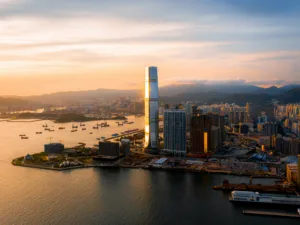Geographical advantage and superior-quality financial services infrastructure have already established Singapore as one of the leading wealth hubs in the region. However, the experts say that the city-state’s significance is very likely to spread globally. Today we explore what makes Singapore the next preferable center for family offices and UHNWI.
Since China passed their new security law earlier this year and intensified the control over the traditional financial core — Hong Kong, the investors with Asian focus are actively looking to relocate. Singapore answered this requirement by launching the Variable Capital Company (VCC), a new tax-efficient and convenient structure for investors.
VCC is going to heavily simplify the establishment of family offices, hedge funds and private equity firms within the country through lower taxes and more comprehensive procedures. On top of that, the government of Singapore is offering to take care of up to 70% of the cost of setting up an investment company.
But cost efficiency and tax reduction are far from being the only reasons for UHNW individuals and families to shift their attention to Singapore. According to the regional industry insiders, it is the operating philosophy and ecosystem of the city that serve as major attraction points. Singapore’s policies are widely known to embody three crucial principles: perseverance, trustworthiness and transparency. Along with political stability provided by the pro-active government, this creates a perfect, healthy mix for prosperous wealth management.
In addition, more and more UHNW families are choosing to move to Singapore based on the potential benefits of combining the asset allocation with residency rights. Comfortable immigration channels, such as the Employment Pass and the Permanent Residence programs, allow for nearly effortless transition. And for the higher-asset investors there are options like Global Investor Program, which works as both a local economy booster and a gateway to more efficient investment paths.
The high concentration of wealthy individuals and families in Singapore also creates a platform for socially impactful projects. As the new generation begins to replace the former, cosmopolitan, globalized nature of the city will serve as a catalyst for forward-looking solutions and partnerships. These so-called mindful investments will ultimately result in pursuing more philanthropic causes in sectors like healthcare and education. Consecutively, we are expected to observe an expansion of activities and perspectives of the family offices, both inside and outside the region.
Judging from above, we can safely state that Singapore’s position in the Asia’s investor attraction race is very strong. Even considering the softening policies in Tokyo, with the expectation of visas waiving and fast tracking of license issuing for asset managers, and traditionally investor-accommodating regulations in India and Vietnam.
In conclusion, it is important to note that Singapore isn’t aiming to completely outshine other significant financial hubs. The main goal remains the enhancement of regional wealth generation and management. Which adds another advantage to family offices that hold interest in Asia.




